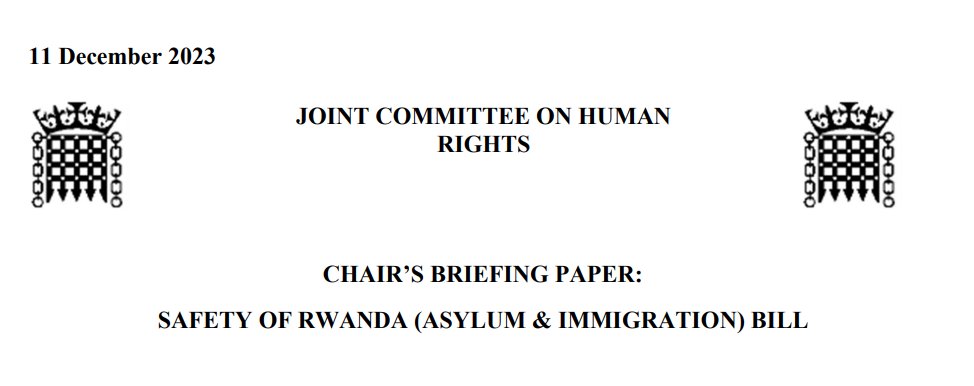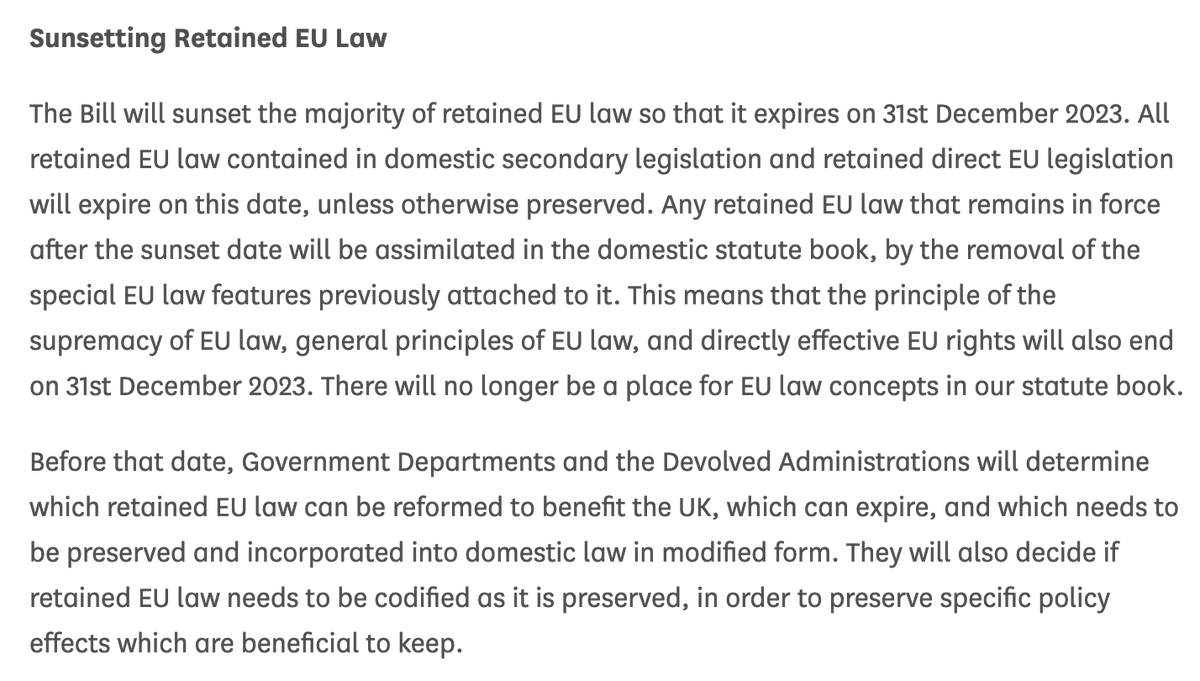1. Just catching up with @Policy_Exchange's briefing on the Rwanda Bill. policyexchange.org.uk/wp-content/upl…
2. Academics (including, it seems, @AdamJTucker and me) are implicitly accused of being 'wildly irresponsible' by 'invit[ing] the Supreme Court to overthrow' parliamentary sovereignty: 

3. This appears to be based on @AdamJTucker's very measured @ukcla piece () and a piece I posted on my blog ()ukconstitutionallaw.org/2023/11/22/ada…
publiclawforeveryone.com/2023/12/06/the…
publiclawforeveryone.com/2023/12/06/the…
4. In reality, no-one is inviting the Supreme Court to 'overthrow' parliamentary sovereignty or suggesting that it is likely that the Court would take the radical step of disapplying the Rwanda Bill. But the position is more subtle than @Policy_Exchange acknowledges.
5. As @AdamJTucker points out in his piece, dicta that suggest Parliament's legislative authority might be more qualified than hitherto assumed form 'a subtle but pervasive background feature to the contemporary constitution'. 

6. In making that point, @AdamJTucker draws on a very helpful piece by Se-shauna Wheatle on the residual powers of courts, in which she considers dicta in the AXA and Jackson cases: ukconstitutionallaw.org/2012/07/10/se-…


7. I have argued that the relevant dicta are best understood in the context of a set of expectations that presuppose both Parliament & courts will remain within their respective constitutional spheres, rather than as a bald assertion of judicial authority. publiclawforeveryone.com/2023/12/12/cou…


8. Finally, it's worth noting that declining to apply a provision in an Act of Parliament may, in some circumstances, be an affirmation rather than a rejection of parliamentary sovereignty, as Laws LJ said in Cart and as I noted here: publiclawforeveryone.com/2023/12/11/cou…


9/9. All of this seems some distance from academics being 'wildly irresponsible' and 'inviting' the courts to 'overthrow' parliamentary sovereignty.
@threadreaderapp unroll
• • •
Missing some Tweet in this thread? You can try to
force a refresh

 Read on Twitter
Read on Twitter














